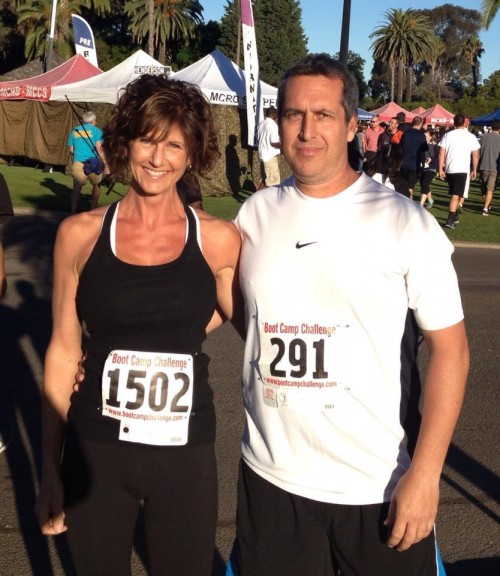If you’ve ever watched Olympic athletes compete, you may be overwhelmed by their sheer athletic ability. While we can recognize that athletes are at the top of their field, have you ever thought about what it takes to compete at that level? It’s overwhelming to know the work they put in to become the best.
Olympic athletes need to be in peak physical and mental shape, including pre-and post-workout treatment. That’s why many athletes utilize float therapy as part of their training. Floating is the best for muscle recovery and mental concentration. On top of that, it’s a holistic practice everyone can benefit from.
Understanding Float Therapy
Flotation therapy utilizes several components to help people relax both physically and mentally. The practice begins with a pod filled with water and Epsom salts set to skin temperature and a combination of sensory deprivation and a zero-gravity environment.
During a session, guests float freely in the pod atop the water with the help of Epsom salts. The unique mixture of salts and water creates a buoyancy effect, supporting the body for a deeply relaxing experience. Because these salts have anti-inflammatory benefits, they reduce swelling around the joints and fully relax sore or tense muscles.
In conjunction with physically resting is sensory deprivation for the mind. During a float, it’s easy to cut off the senses from processing external stimuli. While we don’t think of all outside noises as stress-inducing, they can significantly impact our mental health. Shutting away the disruption means a mental break from stressors and issues that often lead to anxiety or depression.
In this environment, you can set worries aside while your mind and body heal.
Pre-workout Concentration
Think about all the ways athletes perform. Think about how you perform when you’re gearing up for a workout. And then, imagine what it must be like to use float therapy to ramp up your concentration before a workout.
Before exercising, it’s essential to be in the right frame of mind. You want to concentrate on having a great workout because if you lose focus, you’re not only putting in less effort, you might also injury yourself. Injuries commonly prevent people from continuing their health journey due to the lengthiness of the rest and recovery period. An injury can also be detrimental to an athlete’s career.
So, ask yourself, how does that impact your exercise if you’re not in the right frame of mind? How might that affect an athlete’s performance? While exercising is considered extremely important, it’s easy to forget about the pre-workout concentration we should utilize to get the very best out of our performance.
This is ultimately why float therapy’s sensory deprivation is the perfect opportunity to clear your mind and prepare you for a great workout session.
Post-workout Recovery
Let’s say we’ve all had a great workout—whether you’re an athlete or an individual with a regular workout routine—and afterward, you can feel the physical impact of what it’s done for your body. There might be some sweat and exhaustion, maybe some aching muscles and soreness—all of which the body relies on to repair itself and ultimately make us stronger and healthier.
But the recovery period isn’t always the best experience, especially when the muscles are involved. We use our muscles every day, but it can sometimes hurt to move when we put them through a vigorous workout. This is due to the microscopic damage inflicted on muscle fibers, mainly caused by lactic acid buildup after intense exercise.
For the most part, muscle soreness goes away within a few days, and for many people, they use that as an indicator of a highly great workout. However, if there are dangerous amounts of lactic acid in the body, it can sometimes induce a life-threatening condition called lactic acidosis.
Fortunately, because of float therapy’s physical benefits, resting in a zero-gravity environment positively impacts muscle recovery, effectively reducing lactic acid and providing the body with an opportunity to recover from strenuous movement.
Think about your daily workout routine and the training athletes commit to; imagine the amount of lactic acid buildup and the damage that occurs to the muscles after exercising—what would happen if there was no rest and recovery period? How might that affect your daily performance? And imagine what that would do for an athlete if they didn’t take the time to properly rest, too.
For many individuals, flotation therapy is the best for muscle recovery, especially after those great cardio and strength training sessions.
Schedule Your Appointment Today
While it doesn’t sound like the mind and body have any correlation, that couldn’t be farther from the truth. Resting the mind impacts the body, so when we gain clarity through relaxation, it positively changes our functionality and vice versa.
The mind and body work in tandem, and the hustle and bustle of everyday life, including our workout routines, can often get in the way of feeling like the best versions of ourselves. But with a bit of relaxation and recovery, we have an opportunity to decompress and step away from our overwhelming responsibilities.
Because pent-up stress and exhaustion translate to mental health issues and reflect in physical symptoms, True REST wants you to feel your best, no matter if you’re an Olympic athlete, a weekend warrior, or just a busy professional. All of us are using our minds and our body’s every day.
If you’ve considered scheduling your float session to experience the benefits personally, there has never been a better time to call. Call today or schedule your appointment online to help you make the most out of your workout routine—just like all the athletes!
Find a True REST Float Spa location near you at www.TrueREST.com.
The post Why Float Therapy is the Best for Muscle Recovery appeared first on True REST Float Spa.





Leave a Reply
You must be logged in to post a comment.